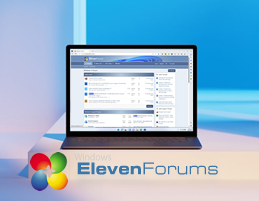- Local time
- 5:21 PM
- Posts
- 65
- Location
- Inver Grove Heights, MN
- OS
- Windows 11 Professional (Via VMware)
Hello all,
Just wondering if any of you use Linux as your primary OS and have windows 11 in a virtualization environment. Wondering how effective that setup is and if it is worth it to do for my needs.
Thanks for responding!
Just wondering if any of you use Linux as your primary OS and have windows 11 in a virtualization environment. Wondering how effective that setup is and if it is worth it to do for my needs.
Thanks for responding!
My Computers
System One System Two
-
- OS
- Windows 11 Professional (Via VMware)
- Computer type
- PC/Desktop
- Manufacturer/Model
- HP
- CPU
- AMD Athlon(tm) II X2 220 Processor × 2
- Motherboard
- HP
- Memory
- 4GB
- Graphics Card(s)
- Advanced Micro Devices, Inc. [AMD/ATI] Caicos PRO [Radeon HD 7450] (prog-if 00 [VGA controller])
- Sound Card
- Nvidia High Definition System Audio
- Monitor(s) Displays
- Phillips TV
- Screen Resolution
- 32" TV
- Hard Drives
- 222GB SSD
- Keyboard
- Generic Wireless Keyboard
- Mouse
- Custom Wireless Mouse
- Internet Speed
- 400 mbps
- Browser
- Google Chrome
- Antivirus
- Webroot SecureAnywhere
-
- Operating System
- Windows 11 Professional
- Computer type
- Laptop
- Manufacturer/Model
- Letsung
- CPU
- Intel Celeron N4020C
- Motherboard
- Intel
- Memory
- 6GB DDR4 Ram
- Graphics card(s)
- Intel Celeron
- Sound Card
- Nvidia Geforce
- Monitor(s) Displays
- 24" TV
- Screen Resolution
- 24"
- Hard Drives
- 500G NVME M2
- Internet Speed
- 400mbps
- Browser
- Google Chrome
- Antivirus
- Webroot Secure Anywhere Internet Security Complete



















